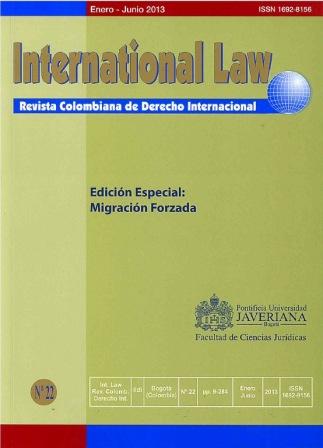Abstract
Most of the analyses on court ruling T/025 of 2004 have been centred on the conditions necessary to overcome the unconstitutional state of things regarding
the situation of displaced people. In this sense, attention has been focused on the ruling s direct and indirect effects on institutions, and on improving their capacity to fulfil the rights of displaced people. Nevertheless, this type of studies has overlooked the day-to-day implementation of the measures set by the Government in order to comply with the judicial orders included in the ruling. For this reason, the present paper presents the results of a field research carried out in the neighbourhoods of Bosa and Soacha (in Cundinamarca, Colombia) where displaced and host populations coexist. These reveal a series of disregarded effects in the daily lives of these people resulting from the execution of forced displacement public policies.
This journal is registered under a Creative Commons Attribution 4.0 International Public License. Thus, this work may be reproduced, distributed, and publicly shared in digital format, as long as the names of the authors and Pontificia Universidad Javeriana are acknowledged. Others are allowed to quote, adapt, transform, auto-archive, republish, and create based on this material, for any purpose (even commercial ones), provided the authorship is duly acknowledged, a link to the original work is provided, and it is specified if changes have been made. Pontificia Universidad Javeriana does not hold the rights of published works and the authors are solely responsible for the contents of their works; they keep the moral, intellectual, privacy, and publicity rights.
Approving the intervention of the work (review, copy-editing, translation, layout) and the following outreach, are granted through an use license and not through an assignment of rights. This means the journal and Pontificia Universidad Javeriana cannot be held responsible for any ethical malpractice by the authors. As a consequence of the protection granted by the use license, the journal is not required to publish recantations or modify information already published, unless the errata stems from the editorial management process. Publishing contents in this journal does not generate royalties for contributors.


